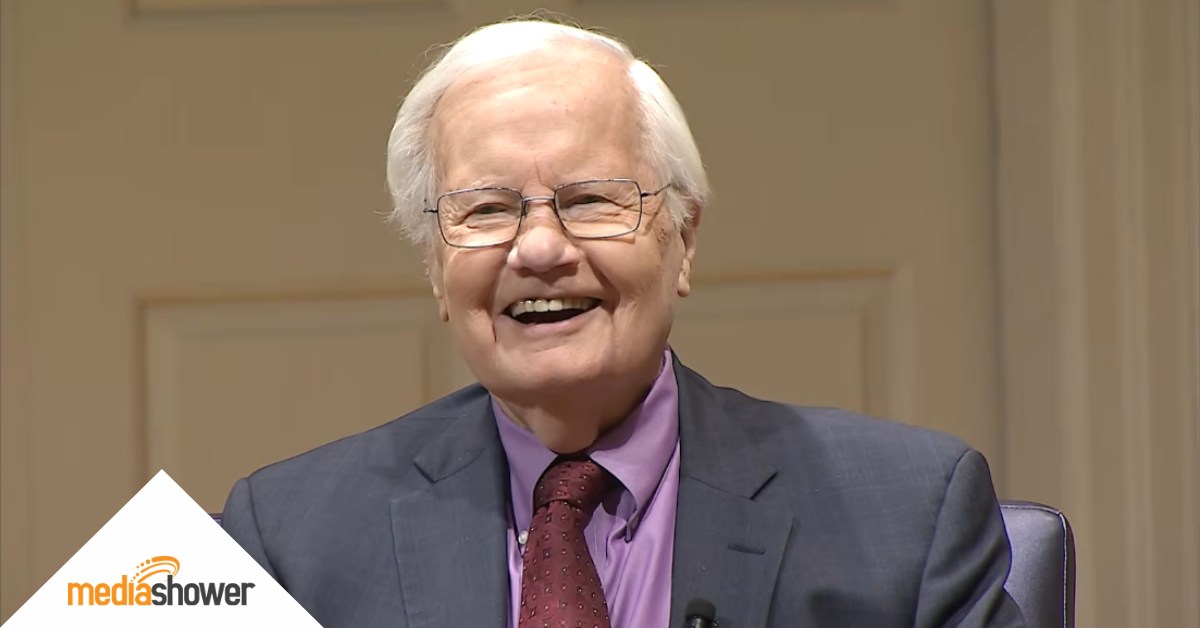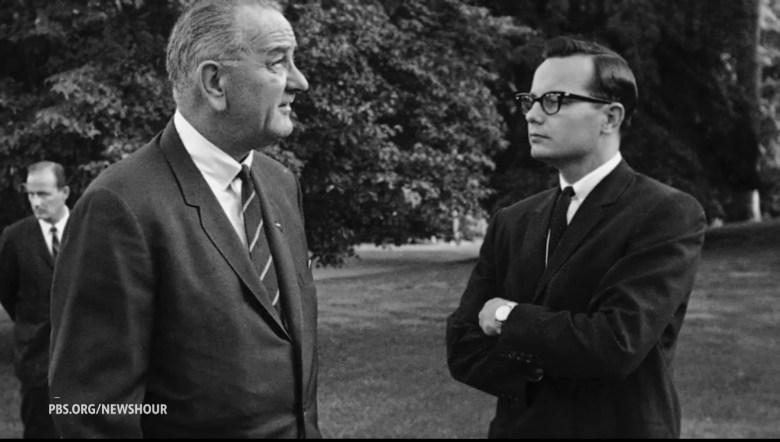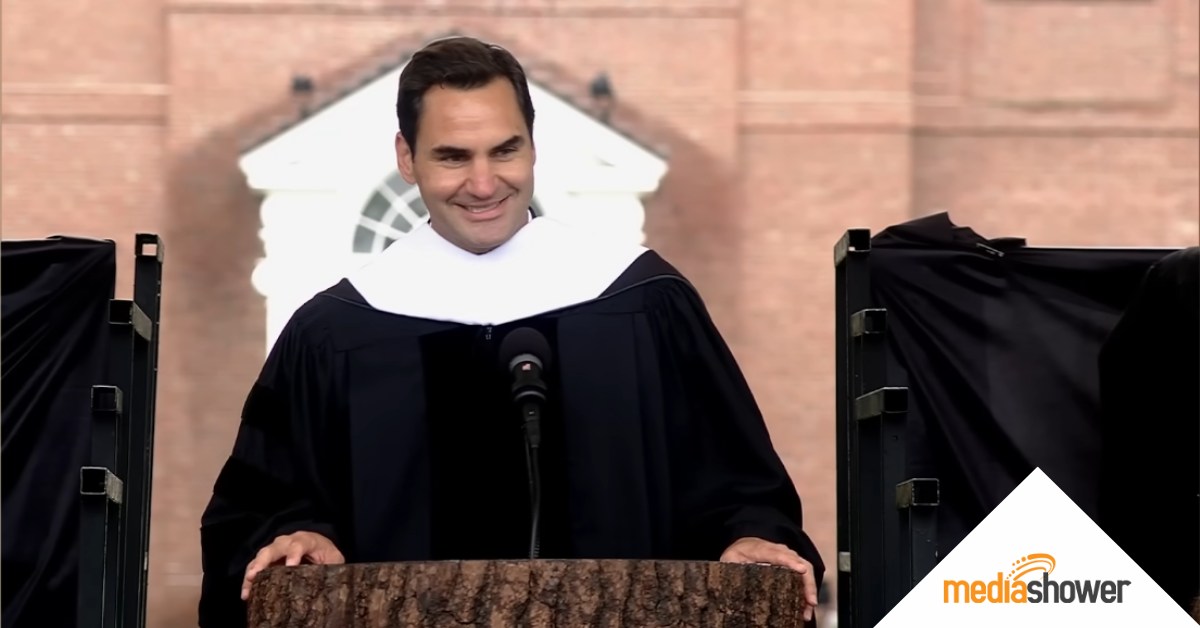
Quick Summary
- Bill Moyers earned trust by doing the quiet work behind the scenes.
- His conversations pulled real stories from everyday people.
- He turned complicated ideas into plain, shareable truths.
- Marketers can apply his lessons to earn real trust, not just attention.
Bill Moyers knew something most marketers don’t: when to stop talking.
When the great TV journalist interviewed Maya Angelou in 1982, he didn’t rush her. He didn’t jump from question to question. He didn’t fill the space with his own ideas. He let her talk. When she paused, he stayed silent until she found her words.
And when she found them, they were words millions would remember.
Angelou spoke of growing up in the segregated South, the shame she carried, the power she found in poetry and her own voice. Many journalists would have pried or prodded for a headline. Moyers did neither. Instead, he offered gentle nudges and open-ended questions that trusted Angelou to go deeper than a soundbite.
By the time the interview ended, the audience had more than a profile of a poet. They had a glimpse of the stubborn hope that drove her to write in the first place.
Going Home with Maya Angelou, 2014
Moyers rarely raised his voice, but he always made it clear: The story belonged to the person telling it. His job was to help them tell it well.
His approach offers five lessons for anyone who wants to communicate with real impact.
1. Use Consistency to Build Trust
Before he ever stepped into a studio, Bill Moyers learned what power sounded like. As a young press secretary for President Lyndon B. Johnson during the 1960s, he drafted speeches and crafted statements meant to steady a country in chaos.
Through civil rights marches, the Vietnam War, and assassinations, Moyers saw how leaders used language to calm, to deflect, and to persuade.

Bill Moyers with LBJ
He didn’t stay long in the White House. He grew uneasy with how easily words could be twisted. He wanted to use language to reveal, not hide. So he left politics and turned to public broadcasting, carrying with him a belief that the best communicator wasn’t the loudest.
The best communicator did the work to earn an audience’s trust.
“The highest function of a free press is to be a mirror of truth.” —Bill Moyers
On “Bill Moyers Journal” and other long-running series, he pushed topics most TV executives wouldn’t touch. He aired long-form interviews about religion, race, inequality, and democracy. He didn’t wrap them in flashy graphics or moral lectures. He let the people closest to the story speak for themselves.
One of his colleagues once described him as “the last moral voice on television.” Moyers shrugged that off. He said he just asked questions that regular folks wanted answered—and gave them space to think.
Commentary on 60 Minutes, 1970
2. Use Plain Language
Moyers knew the danger of big, empty words. He’d seen too many press statements that said nothing at all. So when he spoke or wrote, he cut the fluff. He asked editors to trim his scripts until every sentence said exactly what it meant.
He used simple language because simple language carried further.
“Creativity is piercing the mundane to find the marvelous.”
When he interviewed poet Robert Bly about the men’s movement, the conversation could have drowned in theory. Instead, Moyers pulled it back to fathers and sons, wounds and stories passed down through families.
Viewers didn’t just hear a lecture about masculinity—they heard why it mattered in their own homes.
This approach opened complicated ideas to people who might never pick up an academic paper. Moyers didn’t believe in gatekeeping knowledge. He believed in setting a table big enough for everyone to sit at.
PBS Tribute
3. Know When To Listen
One thing Moyers did better than anyone: he shut up. He let silence do its work. He’d nod, scribble a note, or tilt his head slightly—just enough to show he was listening but not enough to pull focus.
When he sat with Joseph Campbell, the famed mythologist, their talks stretched across hours and continents of stories. Moyers never tried to look smarter than his guest. He knew the power was in the guest’s voice, not his own.
That trust pulled out moments no one could have scripted. Campbell could spin off into folklore, theology, and pop culture, and Moyers would steer him back just by repeating a line or asking for one more example.
The result was “The Power of Myth,” still one of the most watched public TV series of all time.
Behind every graceful moment was hours of preparation. Moyers read every book, marked every page, and never had to fake curiosity. His audience felt that care, and so did his guests.
The Power of Myth preview
4. Focus Deep Rather Than Wide
While other broadcasters chased ratings with conflict and spectacle, Moyers kept his shows quiet and focused. He trusted that enough people still wanted conversations that didn’t shout. He often said he made shows for the people he grew up with—working families who wanted news they could trust.
He used humor carefully but naturally. When an answer ran too long or the topic got too heavy, he’d crack a small joke or share a story from his own life. Those moments reminded people that there was a person behind the questions, not just a name on the screen.
The method worked. His documentaries on everything from the Book of Genesis to corporate corruption drew audiences that rivaled primetime entertainment. People taped episodes to watch again. Teachers built entire courses around his interviews.
His small, focused approach reached further than any marketing campaign could have predicted.
Bill Moyers Essay: The Endgame for Democracy
5. Face Facts Without Flinching
Moyers never skipped the uncomfortable parts. He didn’t frame every question to flatter a guest or dodge conflict. He asked what needed asking and waited for an honest answer, even when it put pressure on people in power.
During Watergate, he grilled administration officials who squirmed under his questions. During the AIDS crisis, he gave voice to patients and activists when other journalists looked away. He understood how tempting it is to smooth out what’s rough. He knew the cost of that.
He kept at it anyway.
He showed that trust depends on facing the facts as they are, not as we wish they were. He stayed calm when conversations turned tense. He kept his tone steady. He didn’t fill every silence or spin it away.
That steadiness made room for people to say more than they meant to at first. It showed viewers that complicated truths can stand on their own without marketing gloss.
Bill Moyers proved that the mark of a great communicator isn’t having the sharpest questions—it’s knowing when to stop talking and listen.
Marketer Takeaways
- Do your research. Know your audience’s world inside out. Study what they care about when no one’s trying to sell them anything.
- Write like you talk. Drop the jargon. If your audience has to translate your message, you’ve already lost them.
- Give your audience the mic. Use surveys, interviews, or open comments to collect actual stories. Then get out of the way and let those stories shape your message.
- Own your mistakes. Talk plainly about what you’re fixing and what you’re still figuring out. People respect honesty more than perfection.
- Show your face. Audiences can smell fake warmth from miles away. Use real voices, real examples, real admissions of what you don’t know yet.
Media Shower’s AI marketing platform helps you keep your message clear and your audience close. Click here for a free trial.


